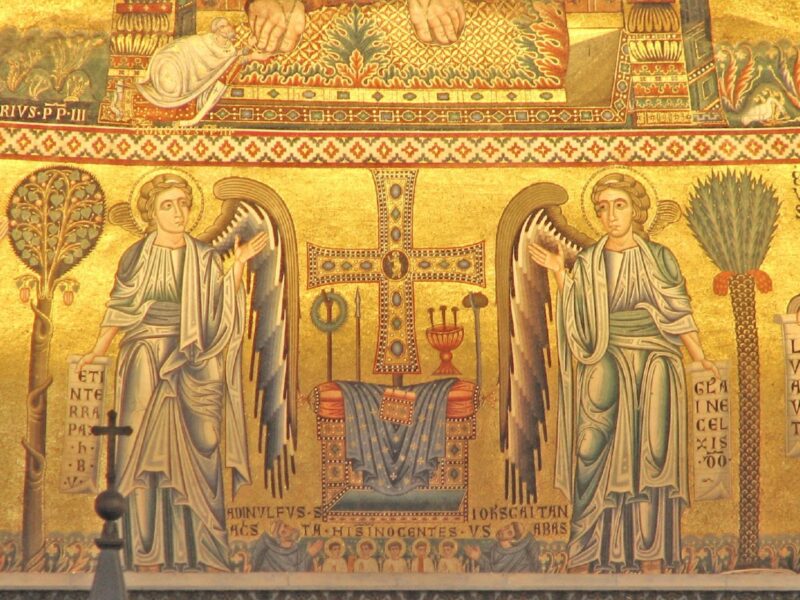
Not Easy, but Free
There is a beautiful moment of reversal in the film Babbette’s Feast. The film tells the story of a pair of sober and austere women and their village, whose puritanical world is turned upside down when their housekeeper offers to cook for them a real French meal.
At first, they’re horrified by the idea, worried about being tempted from their strict way of life, but they and the other members of the village are transformed by the meal in a remarkable way. Their discord is set aside, and they gain a real love for each other.
It is not difficult to get a sense that life in our world is hard. Part of the extraordinary response to Jesus was that he showed that God didn’t want that hard world for us: when God became human in Jesus, he cured the sick and cast out demons, released people from the bondage that they found themselves in.
The people didn’t realise that Jesus was offering an even deeper freedom and an even more radical kind of release. Jesus healed the sick because he loved them, but it was also a sign of something much more profound.
It signified the way Jesus could release people from the sickness they brought upon themselves. God didn’t want the hard world for us: we make it hard by our lack of love for each other and for Him. Jesus comes, as he says today, for the purpose of preaching the Gospel, the Good News, that news that he brings us a way out of that hard world.
What Christians gain, then, is not an easy life, but a free one, a life without the bonds that come from accepting the world’s hardness, and colluding in it. Lorens Löwenhielm initially finds himself trapped in a world where he cannot have what he wants, where life seems hard and possibilities seem restricted, but the feast transforms his outlook and frees him and gives him the sense that everything is possible.
God is constantly offering us that way out of the hard world. It’s not an escapist way out: I rather like the fact that in this passage, Simon’s mother-in-law, returned to health, shows her love through service. Christians don’t opt out of the hard world. We live in it, but in an important sense, we’re not part of it, because we’ve been freed from the hardness in ourselves, so that for us, everything is possible.


